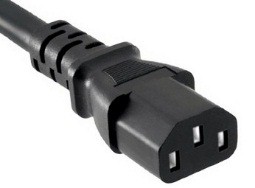Last summer I took my laptop on a trip from the U.S. to Austria. It is an Alienware (Dell) and the power cord has a ground pin and is rated 100-240V, 50-60Hz. I used an adapter to plug into the C European electrical socket. In both hotels I stayed at I flipped the breaker to my room while using my laptop. I thought there would be no issue since the laptop was rated 100-240V. What could have caused this and how do I prevent it in the future? I am going back to Austria and Italy this summer and do not want the same thing to happen again.
I only had one adaptor, so I couldn't try any others. I charged my phone and tablet through it with no problems. It came from Target.
To add additional information, the breaker did not trip immediately. In the first hotel it happened after about 30 minutes of using the laptop and at the second one it happened after a couple of hours of use. Does that make a difference? As I mentioned in the comments, my power cord has a ground pin and the adapter was for a Type C outlet so the ground pin did not go into the adapter. I'm also certain it was being plugged into a type F outlet, which is grounded.

